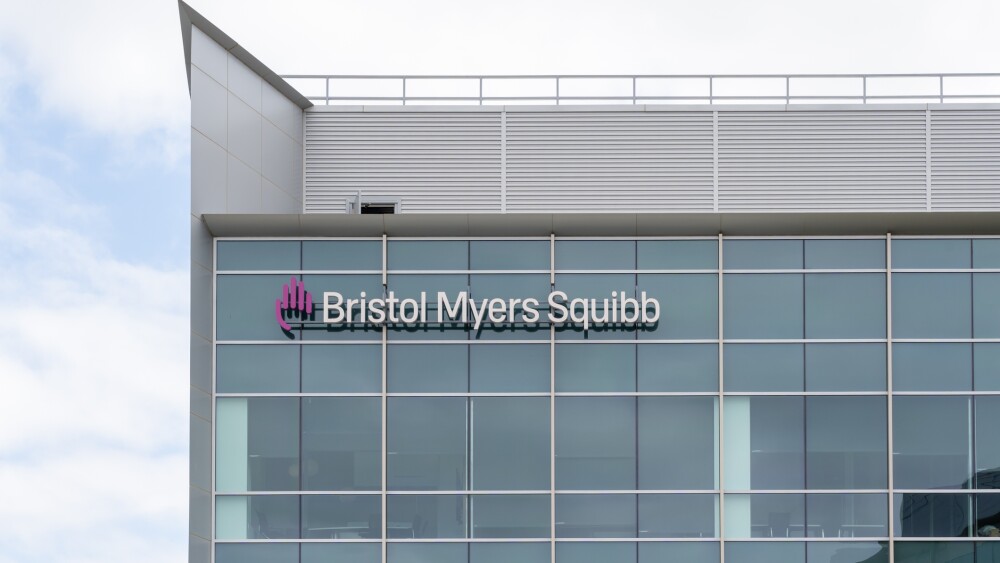KENILWORTH, N.J., April 23 /PRNewswire-FirstCall/ -- Schering-Plough Corporation today announced that the Committee for Proprietary Medicinal Products (CPMP) of the European Agency for the Evaluation of Medicinal Products (EMEA) has issued a positive opinion recommending approval of expanded labeling for REMICADE(R) (infliximab) as first-line therapy, in combination with methotrexate or other disease-modifying anti-rheumatic drugs, for the treatment of early rheumatoid arthritis (RA) patients with severe, active and progressive disease.
The positive opinion for REMICADE as a treatment for early RA is based on data from the ASPIRE (Active Controlled Study of Patients Receiving Infliximab for Treatment of Rheumatoid Arthritis of Early Onset) trial, a 54-week, randomized, double blind, active control study involving 1,049 patients with early RA (less than or equal to 3 years duration) enrolled in 125 centers in North America and Europe. ASPIRE is the first and only trial in early RA to demonstrate the superiority of REMICADE with methotrexate in preventing progression of joint destruction, reducing disability and increasing clinical improvement versus methotrexate alone. In these patients, a significant reduction in the rate of the progression of joint damage has been demonstrated.
"The clinical results from the ASPIRE trial clearly demonstrate that early treatment with REMICADE has the potential to prevent the progression of this debilitating disease. The ASPIRE results contribute to the growing clinical evidence supporting earlier initiation of therapy for RA patients," said Paul Emery, MA, MD, FRCP, ACR Professor of Rheumatology, Leeds University, and clinical director, rheumatology, Leeds Teaching Hospital Trust, UK.
Patients in the ASPIRE study had an average of only seven months of clinical disease duration yet more than 90 percent already had evidence of erosive joint changes. At week 54, results of the ASPIRE trial met all of the primary endpoints: demonstrating superior improvement versus methotrexate alone in improvement of signs and symptoms of RA, prevention of progression of structural damage and improvement in physical function. Importantly, in the subgroup of patients who had no joint damage at initiation of the study, 79.7 percent of these patients treated with REMICADE and methotrexate had no joint damage at week 54, versus 63 percent for placebo.
The CPMP recommendation serves as the basis for a European Commission approval. A Commission approval of the application will result in Marketing Authorization with unified labeling that will be valid in all EU-Member states, including the current 15 member states and the 10 new accession countries as well as in Iceland and Norway.
About Early RA
RA is a chronic, progressive disease and recent research demonstrates that a critical therapeutic window exists within the first years of disease onset when the progressive joint damage of the disease as measured radiographically can be "reset."(1)(2)(3) Joint damage can occur within two years of disease onset in 50-70 percent of RA patients.(4) The American College of Rheumatology (ACR) suggests control of disease progression should start as early as possible to limit joint damage in RA.(3) RA is associated with substantial disability and economic losses, and one study showed that one- third of patients in the UK who were employed became work-disabled within two years of disease onset.(5)
About REMICADE
REMICADE is a monoclonal antibody that specifically targets and irreversibly binds to TNF-alpha which has been shown to play a role in RA, CD, AS and psoriasis, and may also be important in a wide range of other immune- mediated inflammatory disorders. REMICADE is unique among available anti-TNF biologic therapies. Unlike self-administered therapies that require patients to inject themselves frequently, REMICADE is the only anti-TNF biologic administered directly under supervision and monitoring of specialized physicians. In RA and CD patients, REMICADE is administered every eight weeks, following a standard induction regimen that requires treatment at weeks 0, 2 and 6. As a result, REMICADE patients may require as few as six treatments each year. The safety and efficacy of REMICADE have been well established in clinical trials conducted over the past 10 years and through commercial experience with nearly 500,000 patients treated worldwide.
In the European Union, REMICADE is the only biologic indicated for the treatment of RA, Crohn's disease (CD), a serious gastrointestinal disorder, and ankylosing spondylitis (AS), a serious inflammatory disease that leads to stiffening and subsequent fusion of the spine.
For RA patients, REMICADE, in combination with methotrexate, is indicated for the reduction of signs and symptoms and the improvement in physical function in patients with active disease when the response to disease- modifying drugs, including methotrexate, has been inadequate. In this patient population, a reduction in the rate of the progression of joint damage, as measured by X-ray, has been demonstrated.
In CD patients, REMICADE is indicated for the treatment of severe, active Crohn's disease in patients who have not responded despite a full and adequate course of therapy with a corticosteroid and an immunosuppressant or who are intolerant to or have medical contraindications for such therapies. REMICADE is also indicated for the treatment of fistulizing, active Crohn's disease in patients who have not responded despite a full and adequate course of therapy with conventional treatment, including antibiotics, drainage and immunosuppressive therapy.
For AS patients, REMICADE is approved for use in patients who have severe axial symptoms, elevated serological markers of inflammatory activity and who have responded inadequately to conventional therapy.
Schering-Plough markets REMICADE in all countries outside of the United States, except in Japan and parts of the Far East where Tanabe Seiyaku, Ltd. markets the product. Centocor, Inc., a wholly owned subsidiary of Johnson & Johnson, has exclusive marketing rights to the product in the United States.
Important Information Regarding Labeling for REMICADE
People with heart failure should not take REMICADE. Prior to treatment, patients should discuss any heart condition with their doctor. Patients should tell their doctor immediately if they develop new or worsening symptoms of heart failure (such as shortness of breath or swelling of feet). There are reports of serious infections associated with REMICADE therapy, including tuberculosis (TB) and sepsis. Some of these infections have been fatal. Patients should tell their doctor if they have had recent or past exposure to people with TB. Their doctor will evaluate them for TB. If a patient has latent (inactive) TB, his or her doctor should begin TB treatment before starting REMICADE. If a patient is prone to or has a history of infections, currently has one, or develops one while taking REMICADE, he or she should tell his or her doctor immediately. Patients should also tell their doctor if they have or have had a disease that affects the nervous system, or if they experience any numbness, tingling or visual disturbances. There are also reports of serious infusion reactions with hives, difficulty breathing and low blood pressure. In clinical studies, some people experienced the following common side effects: upper respiratory infections, headache, nausea, cough, sinusitis or mild reactions to the infusion such as rash or itchy skin. For complete REMICADE EU prescribing information, call Schering-Plough Corporation at +1 908-298-7616.
SCHERING-PLOUGH DISCLOSURE NOTICE: The information in this press release includes certain "forward-looking" information including the market potential for REMICADE under expanded labeling. The extent that REMICADE will be prescribed will determined by market forces and the market viability of REMICADE is subject to substantial risks and uncertainties. In addition, the forward-looking statements may also be adversely affected by many factors, including competitive product development, product availability, the extent of market acceptance of new indications for products, current and future branded, generic or over-the-counter competition, federal and state regulations and legislation, manufacturing issues, trade buying patterns and patent positions. For further details about these factors and other risks and uncertainties, see the company's past and future Securities and Exchange Commission filings, including the company's 2003 10-K.
Schering-Plough is a research-based company engaged in the discovery, development, manufacturing and marketing of pharmaceutical products worldwide.
References: (1) Landewe RB, Boers M, Verhoeven AC, et al. COBRA combination therapy in patients with early rheumatoid arthritis: long-term structural benefits of a brief intervention. Arthritis Rheum. 2002;46:347-356. (2) Egsmose C, Lund B, Borg G, et al. Patients with rheumatoid arthritis benefit from early 2nd line therapy: 5 year follow up of a prospective double blind placebo controlled study. J. Rheumatol. 1995;22:2208-2213. (3) American College of Rheumatology Subcommittee on Rheumatoid Arthritis Guidelines, 2002 Update. (4) van der Heijde DM. Joint erosions and patients with early rheumatoid arthritis. Br J Rheumatol. 1995;34(suppl 2):74-78. (5) Barrett EM, Scott DGI, Wiles NJ, Symmons DPM. The impact of rheumatoid arthritis on employment status in the early years of disease: a UK community-based study. Rheumatology. 2000;39:1403-1409.
Schering-Plough CorporationCONTACT: Denise K. Foy, Schering-Plough, +1-908-298-7616, orMary-Frances Faraji, +1-908-298-7109, or Investor, Janet Barth or LisaDeBerardine, +1-908-298-7436, all for Schering-Plough
Web site: http://www.schering-plough.com/
Company News On-Call: http://www.prnewswire.com/comp/777050.html




